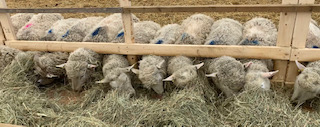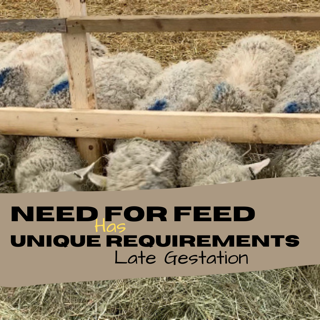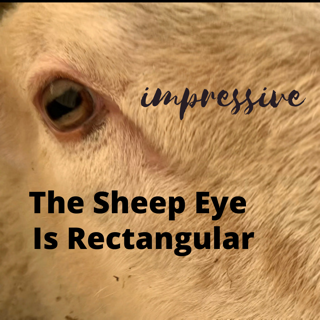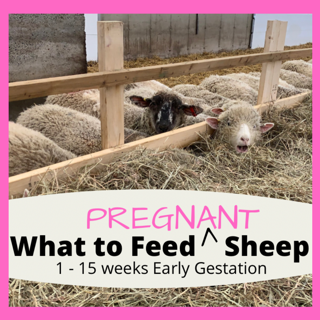Need for feed in late gestation has unique requirements and begins 6 weeks before lambing.
- The last 40-45 days before lambing.
- There is major fetal development during this time and energy requirements increase substantially.
- A higher energy diet is required.
- Over-feeding at this time can cause dystocia [3]
What to Successfully Feed Ewes during the last 4 – 6 weeks of Late Gestation
Late gestation (last 4 to 6 weeks) is a critical period for ewe reproduction. This is when the majority of fetal growth is occurring, placing increasing nutritional demands on the ewe.

Issues that Can Arise if Sheep Feed during Late Gestation is Not Adequate
Ewes consuming inadequate diets are prone to pregnancy toxemia and milk fever. Nutrition in late-pregnancy affects the size and vigor of lambs and the milk producing ability of the ewe. [1]
Gestation – (Pregnancy)
The average gestation length in sheep varies from 142 to 152 days. The average is 147 days. Individual pregnancies may vary from 138 to 159 days. This works out to be approximately 21 weeks. [1]
A ewe’s production cycle can be broken down into seven stages:
- maintenance,
- flushing,
- early gestation, mid gestation,
- late gestation,
- lactation and
- post-weaning.
Management in general, and nutritional management specifically, must change for each of these production stages if a producer is to have a successful lamb crop and, more importantly, good returns for market lambs.
The nutritional requirements for ewes are greatest during late gestation and lactation (especially for ewes carrying multiple fetuses or nursing twins). During all of these stages, ewes should be provided with a good source of trace minerals (mineral block or free choice) and ample amounts of fresh water. [2]
Late Gestation Production Cycle Has the Greatest Nutrient Demands
The late gestation period has the greatest nutrient demands for fetal growth. Reason being is that approximately 70% of fetal growth occurring in the last six weeks of pregnancy.
This is also when the ewe starts to put nutrients towards milk production.
Inadequate nutrition, especially low energy levels, during this time will have detrimental effects on milk production of the ewe and the birth weight and vigour (survivability) of the lambs. [2]
During this stage of production the plane of nutrition should be increased gradually until lambing. Ewes should be fed good quality hay or silage and grain rations should be increase from 0.23 kg (0.5 lb) grain per day at six weeks before lambing to 0.68 kg (1.5 lb) at lambing. [2]
In Summary,
Seeing that we feed mainly hay to our sheep flock; we are still able to ensure their energy requirements are being met. We accomplish this by selecting the hay that has higher levels of protein compared to what’s fed during early gestation. Secondly, we will begin gradually introducing corn fed daily 6 weeks prior to lambing. The corn quantity fed will be 1/2 lb initially then increasing up to 1.5 lbs per ewe per day.





